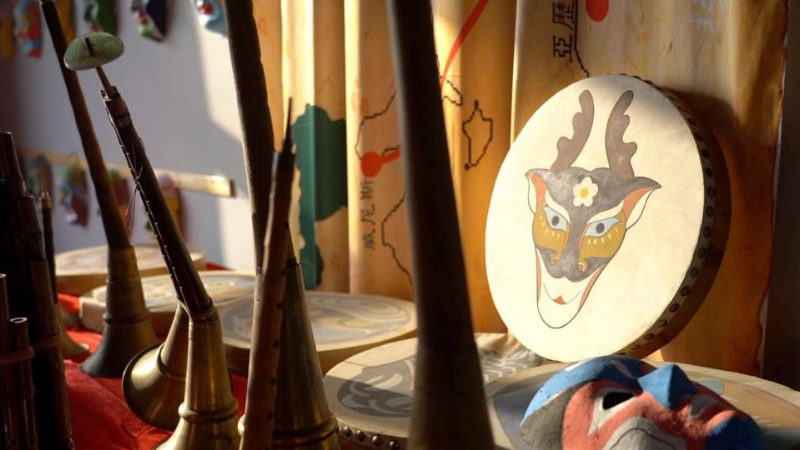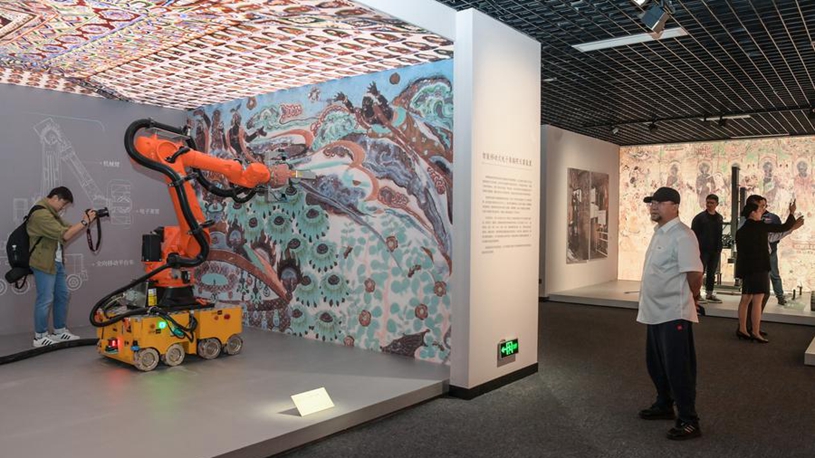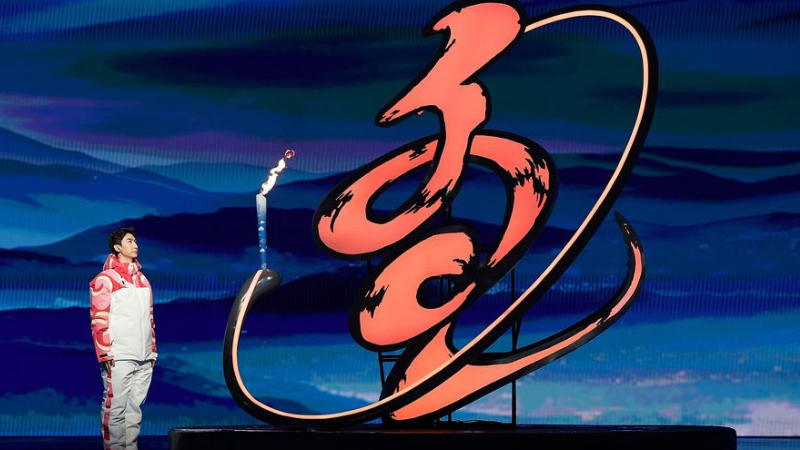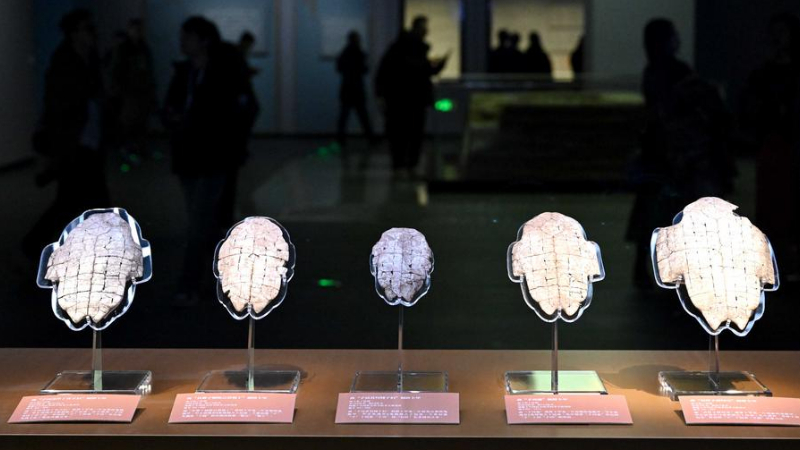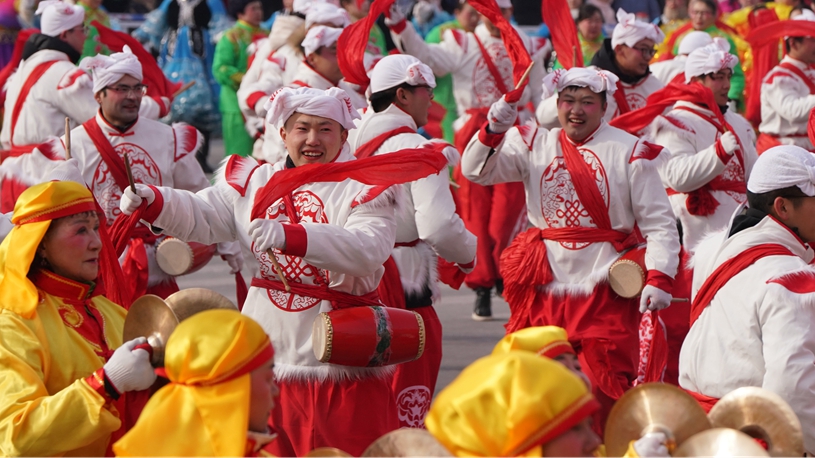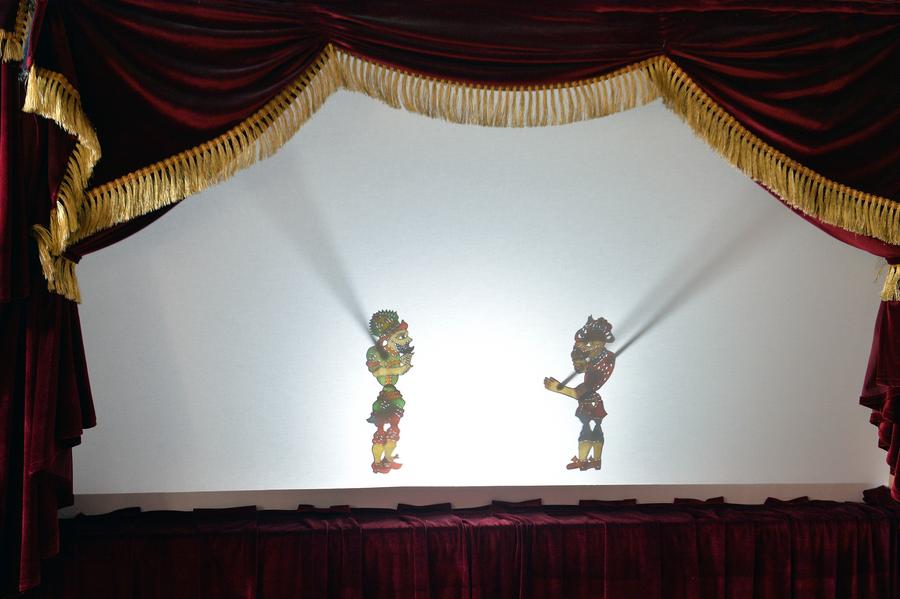
ANKARA, March 1 (Xinhua) -- "When we think of the Silk Road, the first thing that pops into people's minds is trade. However, trade isn't limited to goods; it encompasses culture," said Berkant Demir, a young puppeteer at the Intangible Cultural Heritage Museum in the Turkish capital Ankara.
Demir, a puppeteer of Türkiye's traditional shadow play Karagoz, highlighted how the cultural exchange along the Silk Road over the centuries had forged strong connections between peoples and nations, notably between the Chinese and the Turks.
Taking Karagoz, the Turkish art that was recorded by UNESCO on the Representative List of the Intangible Cultural Heritage of Humanity in 2009, for example, its origins are believed by some historians to stem from Turkic communities in Central Asia, who drew inspiration from Chinese shadow puppetry, a cultural heritage that is well-preserved in China to this day.
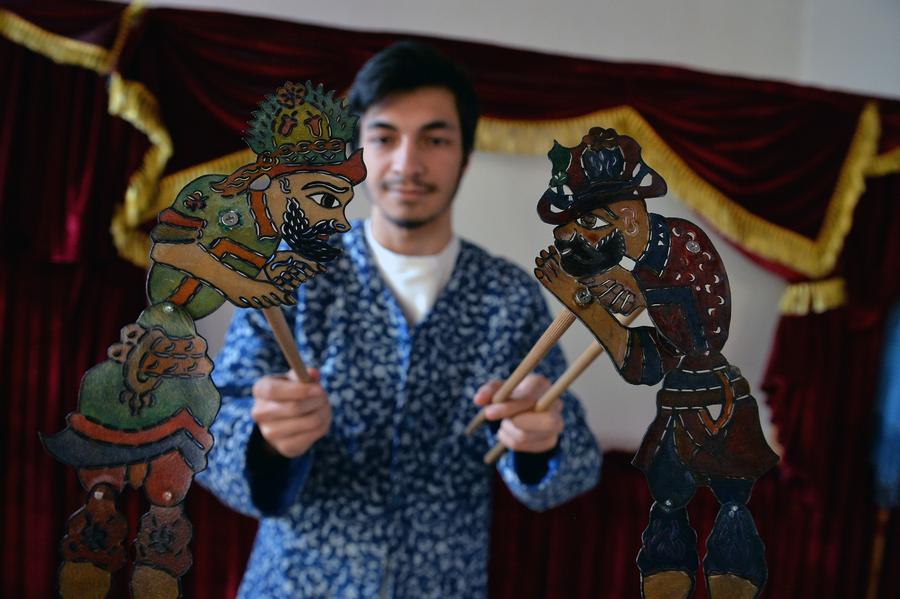
"Shadow play exists in most of the countries located on the ancient Silk Road," Demir told Xinhua in a recent interview.
Preserved within Ankara's Intangible Cultural Heritage Museum, this art stands as a testament to Türkiye's commitment to safeguarding its folklore, artistic practices, and storytelling traditions.
Demir explained that shadow play is a dramatic form of storytelling, in which silhouettes made of animal leather are projected onto a white screen. Multitasking performers sing the tunes and words of the story, while a lead puppeteer manipulates the movement of leather character puppets and light sources behind the screen. The Turkish form of this art is known as Karagoz.
"Karagoz is a slightly more primitive version of television and cinema. There is a light in the background and moving pictures on the screen ... Karagoz was the starting point of today's cinema," Ibrahim Oztahtali, a scholar from Türkiye's Bursa Uludag University, told Hurriyet Daily News in January.
Karagoz is one of the two leading characters featured in the performance, who is from the lower class and has coarse manners. The other protagonist is Hacivat, a refined and educated person who is engaged in lively debates with Karagoz. According to legend, the characters were believed to have been real individuals, but there is no historical record to prove it.
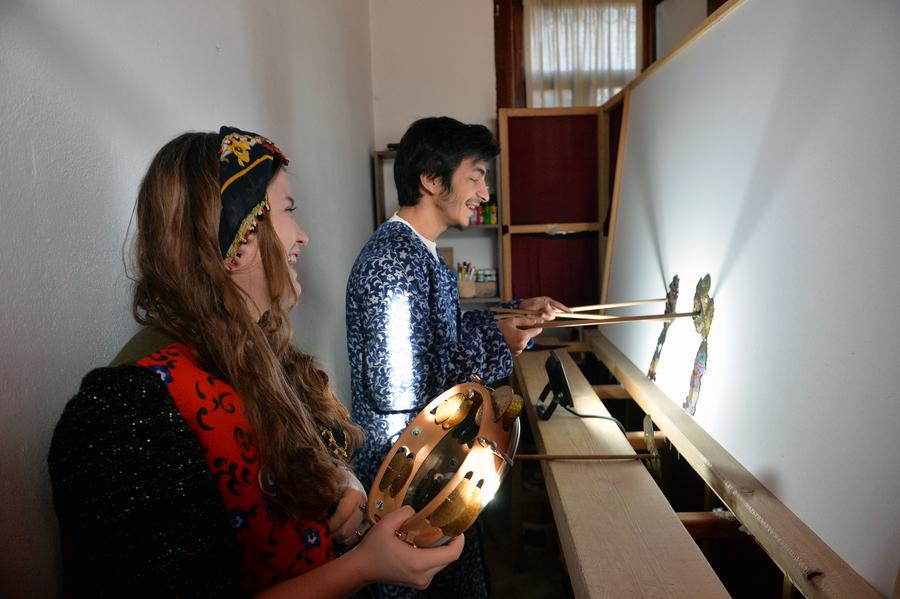
The puppetry play, initially staged by nomadic Turks in Central Asia within their tents, found its place in Turkish theater during the Ottoman period about 700 years ago in Bursa, a city located in northwestern Türkiye that was the seat of the Ottoman Empire in the early 14th century and where shadow theater first became popular in the 16th century, said Ibrahim Oztahtali.
Featuring performances inspired by social events, daily life, political affairs, and romantic tales, the Karagoz play not only sheds light on the political and social events of the time but also reflects people's criticism, said Demir, adding its primary objective was to educate people through entertainment.
"In ancient times, Karagoz performances were not only epic but also served as an educational tool for people of all classes," he said.
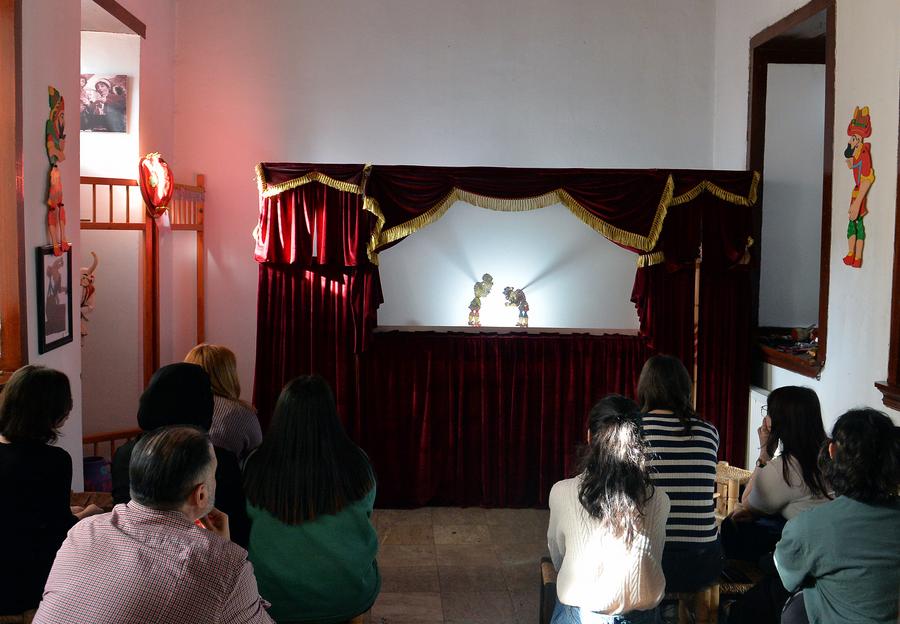
In the old days, the peak performance season coincided with the Muslim holy month of Ramadan as fasting people wanted entertainment until dinnertime. However, nowadays, shadow theater performances can be enjoyed throughout the year, he noted.
Demir attributes the enduring popularity of shadow theater in modern Türkiye to "a sense of nostalgia" among the people. "As societies progress, there is often a tendency to reconnect with the past," he said. ■

